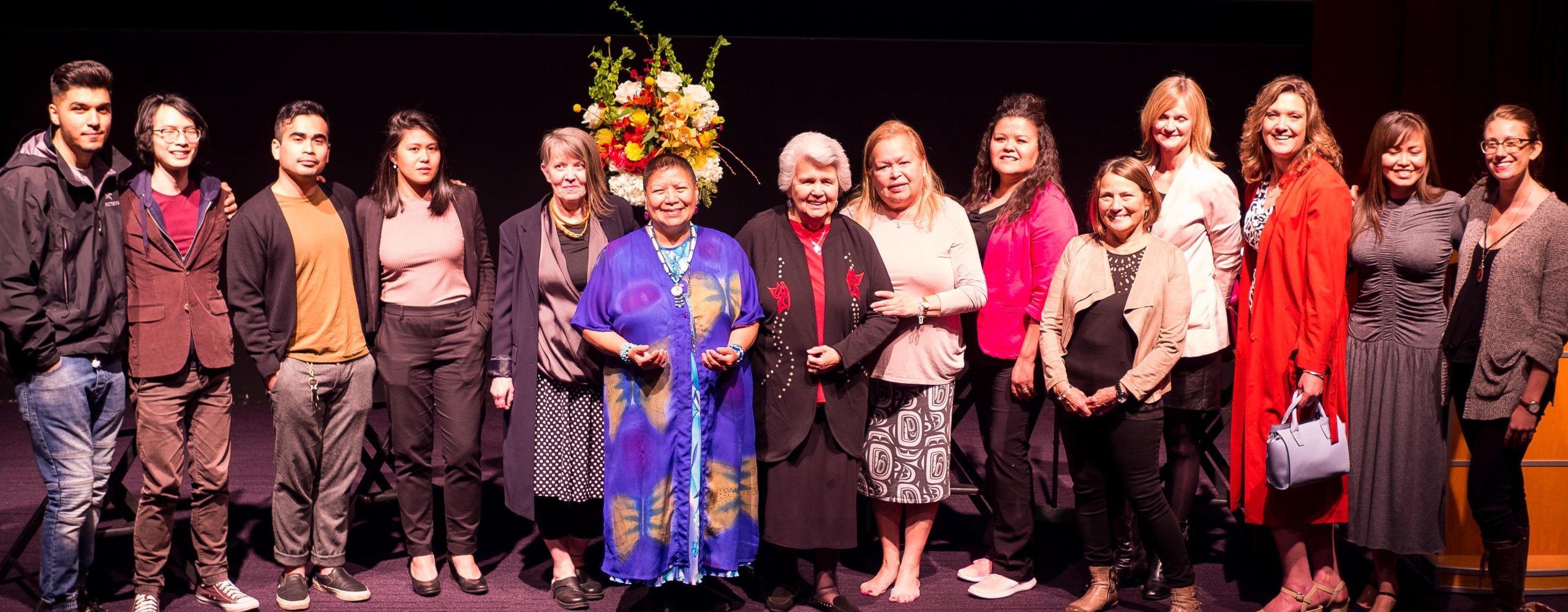EDGE
Film Festival
A full house at the Chan Centre’s Royal Bank Cinema enthusiastically engaged with Elder Roberta Price of the Snuneymuxw and Cowichan First Nations as she opened the second annual Edge Film Festival with her story and her blessings. The films selected for the evening not only reveal work in which the School of Nursing has partnered, but also exhibit striking and dynamic ways of bringing research to life for the diverse audience of academics, artists, and fans.
The first film, New Frames, is based on a research study by doctoral trainee Carla Hilario. Shot in stark black and white close-up, the film brings the audience into the lived experience of young immigrant and refugee men as they open up to the camera and reveal their stories. Using participatory video methods, excerpts from the interviews of the 33 young men who participated in the study are reenacted through the remarkable talents of six local actors. Though not the actual participants in the study, by embodying their words, the actors effectively translate the study results from the page.
“They’re Not Scary”: An Intergenerational Dance Project is an uplifting tale from a study conducted at the University of the Fraser Valley’s Centre for Education and Research On Ageing by researchers Shelley Canning, Dr Michael Gaetz, and Lee Kwidzinski. The film takes place over the six-month duration of the “Imagine Dance” project, in which elderly residents of a care facility in Chilliwack, BC interact weekly with a ballet class from the same neighbourhood. Director Darren Blakeborough captures the interactions on film, as delightful relationships develop. Not all the outcomes of the study have been measurable scientifically, but the filmmakers beautifully capture visible evidence of the benefits of intergenerational integration.
Because of unjust socio-economic inequities that are tied to the historic and ongoing legacies of colonialism, Aboriginal people are overrepresented at each stage of the Canadian criminal justice system and face persistent barriers to healing and rehabilitation. Work 2 Give—a prison employment initiative founded in partnership between the Correctional Service of Canada, the Tsilhqot’in First Nation, and Punky Lake Wilderness Camp Society—seeks to support healing for both Aboriginal inmates and communities through the fostering of connection and relationship through meaningful prison work. A trailer for the third film of the evening was shown at last year’s Edge Film Festival and Healing Beyond the Prison Gate: Incarcerated Men Work 2 Give to Indigenous Communities in BC was eagerly anticipated by film-goers. This film shares findings from a collaborative and community-based research study on the impacts and potential of the Work 2 Give initiative, findings shared most powerfully through the voices and stories of the inmates and communities who participate in and benefit from the initiative.
The final film, Our Voices, Our Stories, was produced and directed by Barb Cranmer (of the ‘Namgis First Nation) and documents not only the demolishing of the St Michael’s Indian Residential School in Alert Bay, but also the real and symbolic importance of that act to those who survived the school, their families, and the wider community.
The message of support and survival was brought home in the panel discussion that followed the screenings. In collaboration with partners and agencies, the research presented by the School of Nursing in film shows no sign of slowing down. We invite you all to attend the events that will take place in our centenary year to keep up with nursing research presented in entertaining and moving ways. Visit nursing.ubc.ca/events to keep up to date on this and other upcoming events.
